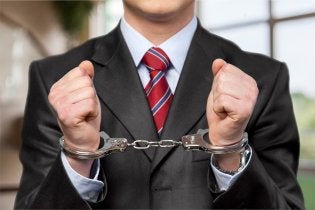 When it comes to defending individuals who have been charged with crimes , an experienced criminal lawyer near Annapolis can help. A criminal defense attorney must know the court system and relevant state traffic and criminal laws. When you look for a criminal lawyer, make sure he or she devotes a significant part of the practice to criminal defense, so you know you are getting the best legal strategy. Keep reading to learn more about how defense strategies involve solid evidence, a good explanation, and sufficient preparation.
When it comes to defending individuals who have been charged with crimes , an experienced criminal lawyer near Annapolis can help. A criminal defense attorney must know the court system and relevant state traffic and criminal laws. When you look for a criminal lawyer, make sure he or she devotes a significant part of the practice to criminal defense, so you know you are getting the best legal strategy. Keep reading to learn more about how defense strategies involve solid evidence, a good explanation, and sufficient preparation.
Solid Evidence
To stage a defense, a criminal lawyer first examines the evidence. As any criminal defense attorney knows, not all evidence is good evidence. Still, a good criminal attorney is able to carefully select the strongest evidence that weighs in his clientâs favor. For example, even a client who has not broken any drug laws will run into problems if he or she was on the scene when a drug crime was committed. However, being present for a crime is only circumstantial evidenceâa criminal lawyer will point out that the prosecution needs more to sway a jury.
Good Explanation
If you have been charged with a crime, the prosecution probably has some evidence connecting you to the misdeed. The next part of your criminal defense strategy involves having a good explanation. Whether you are facing drug charges or have been charged with a violent crime, you and your criminal lawyer will need to work together to explain either why you could not have committed the crime or why your actions were legally justified. For example, in cases of self-defense, some offenses may be legally justifiable.
Sufficient Preparation
The final part of strategizing with your criminal defense attorney involves preparing your case. Remember, your criminal lawyer is your advocate. That means he or she can help prepare your case for a jury, keeping in mind how best to attack the evidence presented by the prosecution and how best to present any evidence in your favor. Preparation may include exhibits and illustrations, witness testimony, or in some cases your own testimony. Your attorney can help you decide whether you should testify or not, and if you do, your attorney can help prepare you for being on the witness stand.

